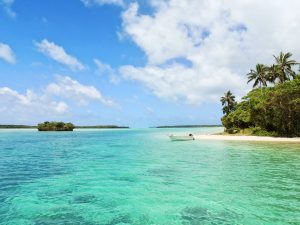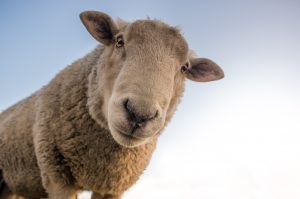New Zealand/France research cooperation is primarily driven by bottom-up initiatives from researchers. The instruments on both sides for promoting scientific exchanges and networking therefore play an important role in providing opportunities for collaboration.
- CNRS International Cooperation Tool Kit

(Source: Image from unsplash.com)
The French National Centre on Scientific Research (Centre National de Recherche Scientifique – CNRS) has developed five programs to give institutional visibility to strategic cooperations:
- International Project for Scientific Cooperation (PICS),
- Joint Research Project (PRC),
- International Associated Laboratory (LIA),
- International Research Network (INR),
- and International Joint Unit (UMI).
These programs can support mobility of researchers and small equipment, create a research network, or structure a collaborative work through an LIA or UMI. Each program presents specificities in terms of eligibility, funding, and duration.
https://www.cnrs.fr/derci/IMG/pdf/toolkit_2017_v4.pdf
In 2017, CNRS had three ongoing International Projects for Scientific Cooperation (3-year international cooperation projects- PICS) with New Zealand:
- “Designed interfaces: Stable Monolayers for Smart Surfaces”, chemistry project with the MacDiarmid Institute
- “Observation and climate modelling at vineyard scale in the context of climate change”, environmental research with the University of Canterbury
- “Study of the role of the neuropeptides RFRP3 in modulating anxiety/stress and its interplay with the neuropeptide kisspeptin to influence reproduction”, health project with Otago University
In addition, one International Associated Laboratory (LIA) is currently being assembled between CNRS and Massey University. This “laboratory without wall” would enable to pool human and material resources for 3 years around the research topics of “Adaptation to climate change of subantarctic and southern alpine plants”.
- Dumont d’Urville and Catalyst: Seeding

(Source: image from pexels.com)
NOTE: A new framework is starting in July 2018.
The Dumont d’Urville programme is a travel grant scheme between France and New Zealand. The fund was established in 2005 and funded by the French Ministry of Foreign Affairs supported by the Ministry of Research and Higher Education, and New Zealand’s Ministry for Business, Innovation & Employment. The programme is administrate by the French Embassy, Campus France, and the Royal Society of New Zealand. Nearly 70 projects have been funded since its inception. All research fields are eligible, but over the past years it has particularly supported collaboration in agronomy and agriculture, and nanosciences.
In 2015, the New Zealand Ministry for Business, Innovation and Employment re-shaped its international research support to provide a more simplified and streamlined fund that better supports high quality international science collaborations for New Zealand. The fund is called ‘Catalyst’ and consists of four funding streams that target investment in leadership, influence, seeding and strategic cooperation. The Dumont d’Urville programme is maintained under Catalyst : seeding.
The French partner is now eligible for up to 10 000 EUR per year per project for travel and per diem (accommodation and food). In addition, the New Zealand partner is now eligible for up to 80 000 NZD per project for up to two years to support travel, research expenses and expenses related to hosting workshops.
A project must be submitted twice: on the Campus France website by the French research group, and on the Royal Society Te Apārangi portal for the New Zealand partner.
More information here.
- Pacific Fund

(Source: Photo by Sébastien Jermer on Unsplash.com)
Created in 1985 by French Ministry of Foreign Affairs and International Development, the Pacific Fund has been funding projects contributing to the regional cooperation of New Caledonia, French Polynesia, and Wallis and Futuna. In average, every year two new projects involve a New Zealand research institute and benefit from an average grant of 30 000€ per project. Current funded research areas cover climate change, risk mitigation for natural disasters, economic and industrial projects, health safety and food safety.
https://nz.ambafrance.org/Pacific-Fund-Applications-for-2012
- France Aotearoa Science Technology and !nnovation (FAST!) Society
![]()
(Source: Photo by rawpixel.com on Unsplash)
Created in 2017, the not-for-profit France Aotearoa Science Technology and !nnovation (FAST!) Incorporated Society purpose is:
- To structure and strengthen the collaborations between France and Aotearoa New Zealand
- To foster scientific advances
- To stimulate communication and enhance sharing in science and innovation between the two countries.
FAST! actively develops the France/New Zealand science and innovation network through workshops, communication, and support of student exchanges.
Check FAST! Student Conference Award for more information.
- International research initiatives
Global research initiatives can unlock fundings or research capabilities on specific themes. For instance, France and New Zealand are part of the Global Research Alliance on Agricultural Greenhouse Gases.
Global Research Alliance on Agricultural Greenhouse Gases

Launched in 2009, the Global Research Alliance brings 49 countries together to find ways to grow more food while limiting greenhouse gas emissions. The alliance is divided into four research groups addressing challenges related to paddy rice, livestock, croplands, and developing an integrative research approach. New Zealand hosts the Alliance Secretariat which supports the work of the Research Groups and Council.
The New Zealand Ministry for Primary Industries sponsored the creation of an international capability in livestock emission research with the LEARN awards scheme supporting technical trainings, co-funded PhD scholarships, Postdoctoral Fellowships and Senior scientist awards. New Zealand partner institutions include AgResearch, Landcare Research- Manaaki Whenua, Massey University, the Ministry for Primary Industries, New Zealand Agricultural Greenhouse Gas Research Centre, the University of Waikato. France is part of the integrative research group and French partners are CIRAD, INRA, and the Ministère de l’Agriculture et de l’Alimentaire.
